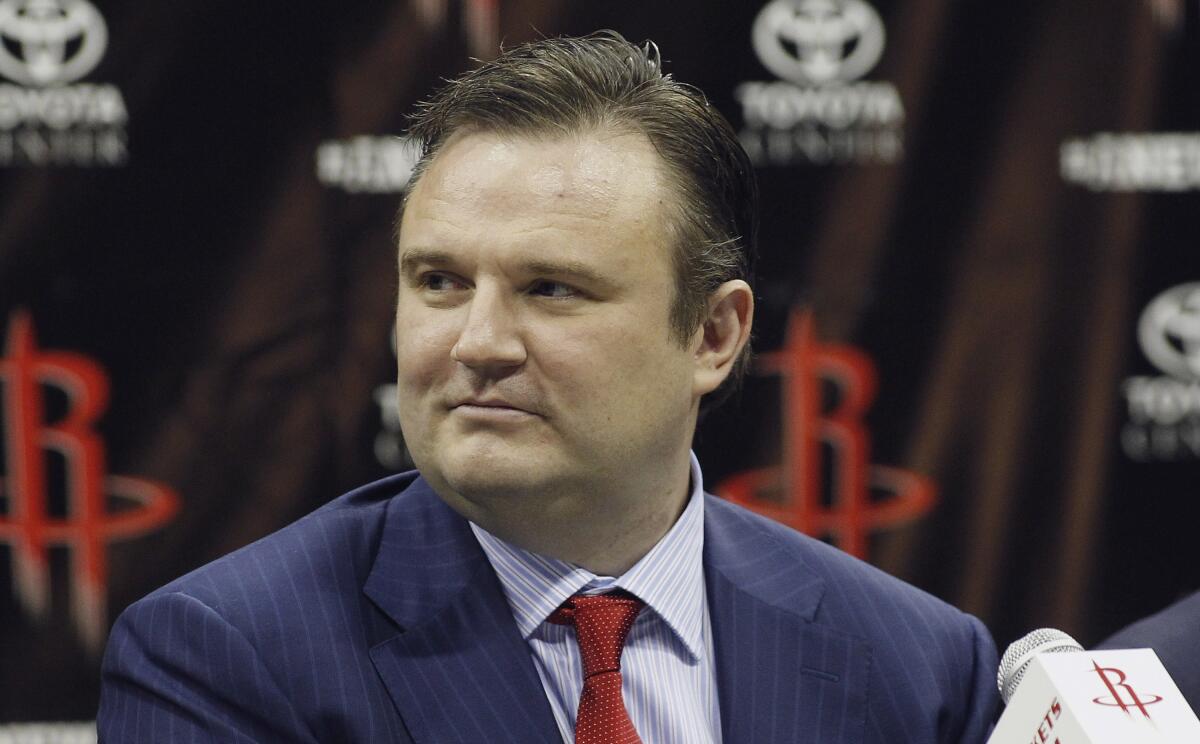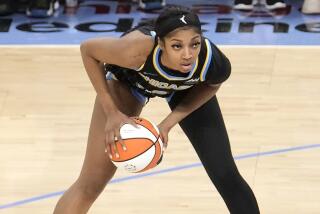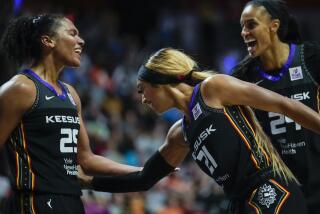The NBA risks its future in China for the sake of an American value

- Share via
The People’s Republic of China is the land of opportunity for many American businesses, with its vast and fast-growing middle class. But doing business there often entails many compromises, some of them painful, including sacrificing some trade secrets, enduring unfair competition from government-owned rivals and abiding by behavioral rules set by a repressive regime.
The potential for enormous profits in China is enough to persuade many U.S. businesses to park their values and principles at the departure gate. But this week, the National Basketball Assn. has defied pressure from the Chinese government, businesses and fans to smack down a team executive who’d offended China with a politically charged tweet. Considering the stakes involved, that’s a brave and welcome move.
At issue is Houston Rockets general manager Daryl Morey’s declaration of support for Hong Kong’s pro-democracy protesters late last week. Morey tweeted (and then deleted) an image with the words “Fight for freedom Stand with Hong Kong,” triggering an escalating backlash. The Rockets owner quickly distanced himself from his general manager, prompting reports that Morey’s job was in jeopardy. And Rockets superstar James Harden, who is a key promoter for shoemaker Adidas in China, dutifully went before the cameras with teammate Russell Westbrook to say, “We apologize. You know, we love China. We love playing there.... They show us the most support and love.”
The NBA isn’t feeling a lot of that love, apparently because it stood up for Morey’s right to speak for himself — even as it emphasized that he wasn’t speaking for the league. “Values of equality, respect and freedom of expression have long defined the NBA — and will continue to do so,” Commissioner Adam Silver said Tuesday. “As an American-based basketball league operating globally, among our greatest contributions are these values of the game....
“It is inevitable that people around the world — including from America and China — will have different viewpoints over different issues. It is not the role of the NBA to adjudicate those differences. However, the NBA will not put itself in a position of regulating what players, employees and team owners say or will not say on these issues. We simply could not operate that way.”
That’s a principle worth sacrificing for. And it’s clear that the NBA will be sacrificing something — this year’s “NBA China Games” contests between the Lakers and the Brooklyn Nets in Shanghai on Thursday and Shenzen on Saturday have been blacked out on Chinese TV and may be canceled, ticket sales have been halted, Chinese celebrities have announced boycotts, and (according to CNN) every one of the league’s official partners in China has cut their ties at least temporarily.
The league may be better situated than most U.S. enterprises to ride out this storm; with about half a billion fans in China, it has an unusual amount of goodwill on which to draw. Nevertheless, there are clear risks for the league. The NBA deserves credit for taking a potentially costly stance in favor of Morey’s right to say the things China doesn’t want him to say.
More to Read
A cure for the common opinion
Get thought-provoking perspectives with our weekly newsletter.
You may occasionally receive promotional content from the Los Angeles Times.









